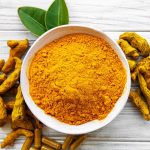Turmeric, also known as Curcuma longa, is a vibrant yellow-orange spice that has found its way into kitchens and medicine cabinets across the globe. Native to Southeast Asia, turmeric is a key ingredient in many culinary dishes and is lauded for its potential health benefits, primarily attributed to its most active compound, curcumin. This article delves into the multifaceted world of turmeric, exploring its benefits, uses, and factors to consider before adding it to your regimen.
Turmeric's reputation as a superfood is backed by scientific research and centuries of traditional medical practices. The spice is deeply ingrained in Ayurvedic medicine, treating many ailments ranging from digestive issues to skin conditions. Modern science has begun to catch up, with numerous studies highlighting curcumin's anti-inflammatory and antioxidant properties. These attributes make turmeric a promising candidate for preventing and treating various diseases.
One of the most compelling aspects of turmeric is its anti-inflammatory effect. Chronic inflammation is a precursor to many Western diseases, including heart disease, cancer, metabolic syndrome, Alzheimer's disease, and various degenerative conditions. Curcumin helps mitigate the risk of these conditions by dampening the inflammatory process. For instance, in heart health, curcumin improves the function of the endothelium, which lines the blood vessels. Dysfunctional endothelial cells can lead to heart disease, so maintaining their health is crucial.
Curcumin's antioxidant properties also play a significant role in its health benefits. Free radicals, unstable molecules that damage cells, contribute to the aging process and various diseases. Curcumin neutralizes these molecules, thereby reducing oxidative stress in the body. Additionally, curcumin boosts the activity of the body's antioxidant enzymes, adding another layer of protection against damage.
Beyond its systemic benefits, turmeric is also effective in managing specific conditions like arthritis and depression. Rheumatoid arthritis, an autoimmune disease characterized by joint inflammation, can be particularly debilitating. Studies suggest that curcumin can reduce symptoms of this condition, offering a natural alternative to traditional anti-inflammatory drugs. A study published on Medical News Today indicates that curcumin's efficacy in treating rheumatoid arthritis symptoms rivals that of pharmaceuticals without the associated side effects.
Another area garnering attention is curcumin's potential to alleviate depression symptoms. Depression is linked to reduced levels of brain-derived neurotrophic factor (BDNF) and shrinking of the hippocampus, a brain area involved in learning and memory. Curcumin has been shown to boost BDNF levels, potentially reversing some of these changes. Moreover, curcumin's influence on several processes involved in depression, including inflammation and oxidative stress, underscores its multifaceted potential in mental health support.
While the benefits of turmeric are impressive, it's essential to consider factors like bioavailability when incorporating it into your diet. Curcumin, despite its potency, is not easily absorbed into the bloodstream. Consuming turmeric with black pepper, which contains piperine, can enhance curcumin absorption by 2000%. Fat also aids absorption, so cooking turmeric with coconut oil or adding it to a smoothie with avocado can be beneficial.
Turmeric's uses extend beyond health supplements and culinary spice. It has applications in skin care, where its anti-inflammatory and antioxidant properties can help manage skin conditions such as acne and eczema. Turmeric masks and creams are becoming increasingly popular in the beauty industry, touted for their ability to brighten the skin and reduce dark spots.
However, the consumption of turmeric is not without risks. High doses can cause gastrointestinal issues in some people. This is particularly relevant for individuals undergoing cancer treatment, as some studies have reported adverse digestive effects. Turmeric stimulates the stomach to produce more gastric acid, which can be beneficial for some but problematic for others. Medical News Today advises individuals with digestive disorders or those on specific medications to consult their healthcare provider before taking turmeric supplements.
Moreover, turmeric's blood-thinning properties warrant caution for individuals on blood-thinning medication. The same property that promotes cardiovascular benefits can pose risks if not properly managed. This highlights the importance of personalized healthcare and consulting with healthcare professionals before significantly changing your supplement regimen.
The appeal of turmeric goes beyond individual health benefits; it is also lauded for its environmental sustainability. Turmeric farming is relatively low-impact compared to other crops, requiring minimal pesticide use and contributing to soil health. This makes turmeric a favorable choice for those looking to support sustainable agriculture.
In summary, turmeric is a versatile and powerful spice with many health benefits. From reducing inflammation and fighting oxidative stress to potentially alleviating symptoms of arthritis and depression, the potential of turmeric and its active compound, curcumin, is vast. However, like any supplement, it should be used judiciously. Consulting healthcare providers, understanding the importance of bioavailability, and being aware of potential side effects are crucial steps in reaping the benefits of this golden spice.
The growing body of research and traditional knowledge supports the inclusion of turmeric in a balanced, health-conscious lifestyle. As science continues to uncover more about turmeric's properties, its role in health and wellness will likely expand, offering even more reasons to embrace this ancient spice in modern-day living.
For those interested in further exploring turmeric's benefits and applications, resources like Healthline and Fortune provide comprehensive insights and updates on recent studies. Additionally, Medical News Today offers valuable information on the latest scientific findings related to turmeric and its health implications.
Incorporating turmeric into your diet can be as simple as adding it to your favorite recipes, making a warm cup of turmeric tea, or taking it in supplement form. This spice's versatility makes it easy to enjoy its benefits in a way that suits your lifestyle and preferences. Whether new to turmeric or looking to deepen your understanding, the potential health benefits make it a worthwhile addition to your routine.









